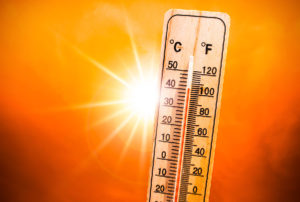I know. You’re thinking about the add on TV where the people go into the repair shop and  make noises and the mechanic tries to guess what they are. Car noises are concerning, and if you are hearing one, you’re probably trying to figure it out.
make noises and the mechanic tries to guess what they are. Car noises are concerning, and if you are hearing one, you’re probably trying to figure it out.
Tire Noise
One of the most common unusual noises you might encounter is tire noise. In fact, tires can make a variety of abnormal noises, each one potentially letting you know of a different probable issue. It’s important to be able to understand not just that your tires are making some kind of strange noise, but what that noise is and what it might mean for your car’s health.
Squealing Noise
Almost everyone has encountered this one – Your tires squealing when you turn the steering wheel. As long as you’re not pulling tight turns at great speeds (not a great idea in general), your tires shouldn’t be squealing.
The most likely culprit for squealing tires is one or more underinflated tire. If you’re hearing squealing, that probably means you need to add some air to your tires. Over time, underinflated tires can cause a variety of problems for your tires, suspension and other parts of your car, so it’s wise to address underinflated tires as soon as possible.
Humming Noise
Another fairly common issue you might run into are tires that increasingly seem to hum as you drive. Keep in mind that tires will make some noise naturally on most road surfaces, and this is perfectly fine. But when that humming increases to a certain level, its an indication of a problem.
In this case, the number one reason for abnormal tire humming tends to be tires with uneven tread wear. Tires can wear unevenly for a number of reasons – a problem with the suspension, faulty wheel bearings, and/or several other causes can result in tires with uneven wear patterns.
To prevent uneven tire wear, you should regularly get your wheels rotated and have a wheel alignment performed routinely. This will balance out the natural discrepancies in wear over time. Getting your wheel bearings and suspension inspected if you suspect your tires are wearing unevenly is also a good move.
Thudding or Slapping Noise
If you’re hearing thudding or slapping noises coming from your tires as you drive, this suggests a problem that’s potentially larger than the others previously mentioned. Thudding noises can mean anything from severely underinflated tires to suspension and alignment issues, and it’s likely an issue needing to be addressed sooner rather than later.
Significant tire noises like these are an indicator that you might be on the verge of blowing out a tire or suffering major damage to your suspension. You don’t want to be driving very long without getting an inspection by a trained professional if you’re hearing noises along these lines.
Brake Noise
Another very common class of abnormal car noises are noises that occur when you’re braking. The process of braking the car is one of the most stressful in terms of wear and tear on your car, as bringing all that momentum to a halt requires a huge amount of energy. While you might hear minimal noise when you brake under normal circumstances, the process should be fairly silent. If you’re hearing strange sounds as you brake, that’s probably an indicator of an issue.
Rattling
If you hear a slight rattling sound when you let up on the brakes, this may not mean you have a problem with your brakes. Brake pads expand due to the incredible heat generated by friction, and a little rattling may be normal due to natural movement of the brake pads.
However, it’s worth noting a couple things about brake rattling: Number one, You should never hear a rattle when you’re pressing down on the brake pedal, and number two, you shouldn’t consistently hear a rattle. If either of these is taking place, you may have an issue with your brake pads.
Lim’s Auto Body is a full service auto body and mechanical repair shop locally owned and operated in Largo, Florida. For more information, go to our web site www.limsautobody.com or call (727) 422-3232.

 wonder how the car is handling all this heat. It can’t be good for a car. There are a few things you should be aware of.
wonder how the car is handling all this heat. It can’t be good for a car. There are a few things you should be aware of.